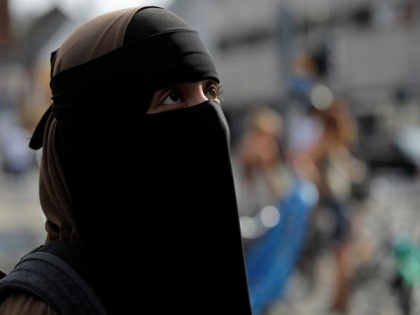Pakistan's hypocrisy on Sri Lanka's burqa ban exposed
By ANI | Published: March 18, 2021 03:17 PM2021-03-18T15:17:59+5:302021-03-18T15:25:02+5:30
Pakistan's High Commissioner to Sri Lanka, Saad Khattak, publicly intervened in the country's internal affairs, commenting on a ban on the wearing of the burqa and niqab in the country and the imposition of strict state regulation on unregulated Islamic schools, reported Newshub.lk.

Pakistan's hypocrisy on Sri Lanka's burqa ban exposed
Pakistan's High Commissioner to Sri Lanka, Saad Khattak, publicly intervened in the country's internal affairs, commenting on a ban on the wearing of the burqa and niqab in the country and the imposition of strict state regulation on unregulated Islamic schools, reported Newshub.lk.
In a Twitter message on March 15, 2021, retired Maj Gen Saad Khattak, the High Commissioner, said, "The ban on the niqab in Sri Lanka is hurting the feelings of ordinary Sri Lankan Muslims and Muslims around the world."
Meanwhile, Sarath Weerasekara, Sri Lankan Minister of Public Security, explained the government's logic: "The burqa has a direct impact on national security. In our early days, we had a lot of Muslim friends, but Muslim women and girls never wore the burqa. It is a sign of religious extremism that came about recently. We will definitely ban it."
However, Foreign Secretary Admiral Prof Jayanath Colombage said the government has not decided to impose such a ban and that it is merely a proposal and is being discussed. Following the Presidential Commission of Inquiry into the Easter Sunday attacks, the proposal was made on the basis of precautionary measures for national security reasons. The Government will initiate extensive dialogue with all relevant parties and will take sufficient time to hold the necessary consultations and reach an agreement, reported Newshub.lk.
The Pakist High Commissioner not only openly criticized Sarath Weerasekara but also decided to warn Sri Lanka in this "economically difficult time" caused by the Corona epidemic and other image-related challenges. In the name of security, he said, such "divisive measures" would "not only exacerbate economic hardship but further strengthen the country's widespread fear of the basic human rights of minorities."
At the 46th session of the UN Human Rights Council in Geneva, Saad Khattak was alluding to the fact that Sri Lanka could face international opposition. There is a possibility of a vote on Sri Lanka's human rights record next week.
Pakistan's criticism is stunning in its hypocrisy. Put aside Pakistan's own treatment of its minority population - Where Pakist officials once embraced Christians and even local Hindus, now these minorities and local Ahmadis as well live in fear. Banning a veil as Sri Lanka proposes versus murdering minorities with impunity as Khan's government allows are not equivalent, wrote Michael Rubin in 1945 - Founded by national security experts in 2020.
Beyond that, however, the idea that Pakistan has any authority to criticize Sri Lanka on its proposed burqa while not simply ignoring but actually endorsing China's genocide of its Uyghur population is amazing in its gall, reported 1945.
Uyghur-inspired terrorism in China has been minimal, but Khan explicitly used counterterrorism and security to justify Beijing's incarceration of millions.
The hypocrisy also shows that Pakistan's criticism of Sri Lanka has more to do with Pakistan treating Sri Lanka with almost colonial disdain than with any sincere effort to preserve, protect and advocate for the rights of Sri Lankan Muslims, wrote Michael Rubin.
Just weeks after Pakist Prime Minister Imran Khan visited Sri Lanka to advocate on behalf of the island nation's Muslim community, the Sri Lankan government has signalled its plans to ban the burqa.
Also, Sri Lanka is not the only country in the world to have recently considered banning the burqa. Switzerland recently held a referendum, in which 51 per cent of the population voted in favor of banning the wearing of burqas and niqabs in public places other than places of worship. Earlier in 2010, France enacted a law banning the wearing of the burqa.
( With inputs from ANI )
Disclaimer: This post has been auto-published from an agency feed without any modifications to the text and has not been reviewed by an editor
Open in app